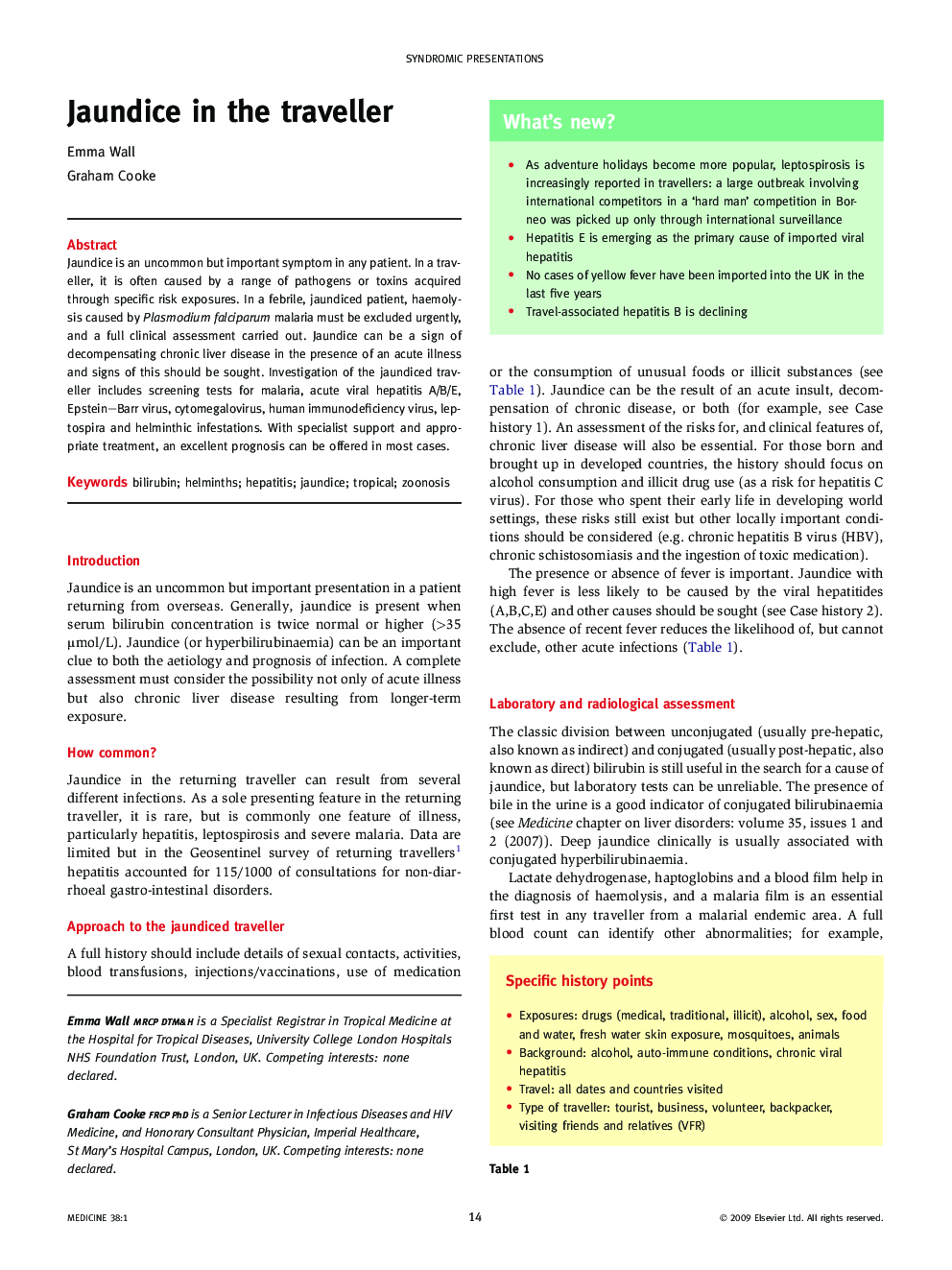| Article ID | Journal | Published Year | Pages | File Type |
|---|---|---|---|---|
| 3804279 | Medicine | 2010 | 4 Pages |
Jaundice is an uncommon but important symptom in any patient. In a traveller, it is often caused by a range of pathogens or toxins acquired through specific risk exposures. In a febrile, jaundiced patient, haemolysis caused by Plasmodium falciparum malaria must be excluded urgently, and a full clinical assessment carried out. Jaundice can be a sign of decompensating chronic liver disease in the presence of an acute illness and signs of this should be sought. Investigation of the jaundiced traveller includes screening tests for malaria, acute viral hepatitis A/B/E, Epstein–Barr virus, cytomegalovirus, human immunodeficiency virus, leptospira and helminthic infestations. With specialist support and appropriate treatment, an excellent prognosis can be offered in most cases.
